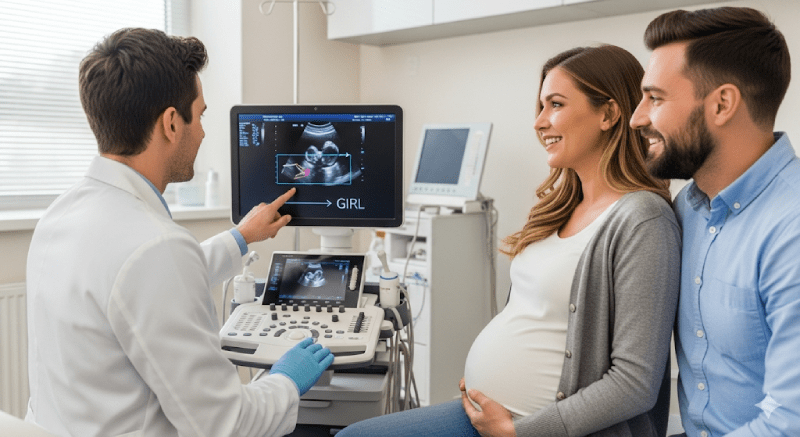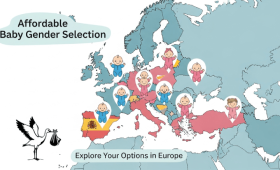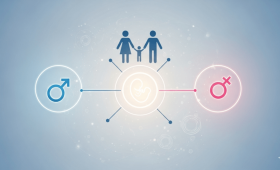What Is The Average Cost Of Gender Selection Treatment In Thailand?
The average cost of an IVF cycle including PGT (Preimplantation Genetic Testing) in Thailand generally ranges between 10,000 USD and 15,000 USD due to the country’s high-standard private clinics. This pricing covers basic IVF procedures, egg retrieval, and embryo transfer.
However, this figure includes PGT laboratory fees and the cost of hormone medications used, yet it may be higher than other Asian countries due to the luxury services offered to international patients. Although Thailand’s medical infrastructure is advanced, it would be beneficial to contact Cure Holiday to compare costs with more affordable and legal centers.
Is Gender Selection Legal With The PGT Method In Thailand?
Gender selection for social purposes (family balancing) in Thailand is generally legally restricted or not permitted, outside of medical necessity (risk of gender-linked genetic disease). Thailand’s advanced clinics apply PGT technology to high standards, but this application primarily aims to check the embryo’s genetic health. Requests for gender selection for non-medical reasons are subject to strict scrutiny due to ethical concerns and legal regulations. Therefore, couples seeking a legally comfortable and definite process would be safer investigating countries that clearly permit this service.
Are Medication Costs Included In The Treatment Price?
No, most IVF clinics in Thailand do not include the cost of hormone medications in the basic fee of their treatment packages. Medication costs vary from person to person depending on the prospective mother’s age, ovarian reserve, and the determined stimulation protocol.
Although medication costs in Thailand are more reasonable than in the USA, they can add a burden of between 1,500 USD and 4,000 USD to the total treatment budget. To accurately calculate these unexpected costs, you should request a clear prescription and estimated cost breakdown from your clinic before starting treatment.
How Much Does The PGT Procedure Add To The Treatment Cost?
The cost of the PGT (Preimplantation Genetic Test) procedure reflects a significant extra expense on top of the basic IVF package in Thailand. The PGT fee varies according to the number of embryos to be examined and the quality of the genetic laboratory. An additional cost generally ranging between 3,000 USD and 6,000 USD is typically requested. This extra cost covers the embryo biopsy fee and the genetic analysis fee. Since PGT confirms the embryo’s health in addition to gender selection, it has the potential to increase the success chance per transfer.
Can Thailand’s Success Rates Be Compared With Global Standards?
The leading IVF centers in Thailand boast high success rates that can be easily compared with global standards, especially in terms of laboratory technology and staff expertise. These clinics report high live birth rates, particularly in patients under 35, using advanced technology equipment and modern protocols. The reliability of success rates depends on the clinic possessing international accreditations (like JCI) and transparent reporting. This high success rate is a key factor that attracts international patients to Thailand despite the higher cost.
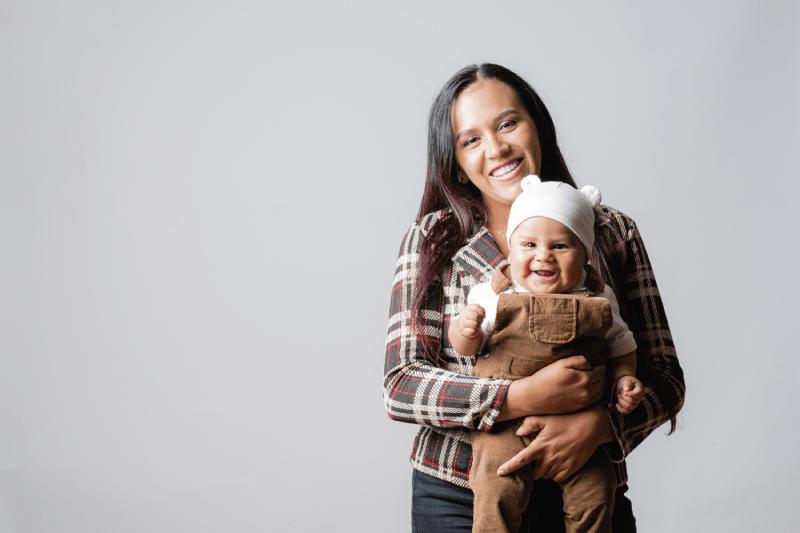
How Should Accommodation And Travel Expenses Be Included In The Total Budget?
Considering the duration of stay for IVF treatment in Thailand (approximately 15-20 days), accommodation and travel expenses form a significant part of the total budget. Accommodation in the capital Bangkok or other popular tourist areas, flight tickets, and local transportation costs can add an extra burden of at least 3,000 USD to 6,000 USD in addition to the treatment fee. Arranging comfortable and hygienic accommodation close to the clinic is crucial for focusing on the treatment. You can receive support from Cure Holiday to evaluate these logistical organizations and affordable package options.
What Are The Quality Standards Of Clinics In Thailand?
IVF clinics in Thailand have the highest quality service and technological standards designed to meet the expectations of international patients. Many clinics are accredited by international health organizations such as JCI (Joint Commission International). This means that hygiene, patient safety, laboratory competency, and ethical practices are globally audited. The use of advanced techniques such as modern laboratories, Time-Lapse (Embryoscope) incubators, and vitrification (rapid freezing) forms the basis of the high quality standard in these clinics.
What Is The Most Important Factor Affecting Gender Selection Success?
The most important factor affecting success in gender selection treatment is the genetic health of the embryo selected for transfer after PGT and the prospective mother’s age. PGT increases the success rate per transfer because it selects the healthiest embryo of the desired sex. However, the decline in egg quality after the age of 35 significantly reduces the chance of finding a genetically normal (euploid) embryo. This situation is the primary reason that increases treatment costs and duration for older patients, thereby lowering the chance of success.
How Is The Embryo Biopsy Procedure Performed?
The embryo biopsy procedure is an extremely sensitive operation performed by embryologists when the embryo reaches the blastocyst stage on the 5th or 6th day. At this stage, a few cell samples from the outer cell layer (trophectoderm) that will form the placenta are gently taken with the help of a special laser or micro-needle. This biopsy requires the utmost attention and technological precision to avoid damaging the inner cell mass of the embryo. These cells are sent to the laboratory for genetic analysis.
How Long Does It Take For PGT Results To Come Out?
The time it takes for PGT results to come out after embryo biopsy generally lasts between 7 and 14 days, depending on the analysis intensity of the genetic laboratory in Thailand and the technology used. During this period, the embryos are safely frozen (vitrification). The result report includes the embryo’s genetic health status (euploid/aneuploid) and sex (XX/XY). Following the arrival of the report, the most appropriate date for transfer is determined, and the treatment plan is finalized.
What Is The Cost Structure For A Second Treatment Attempt?
The cost for a second attempt in Thailand, if a PGT IVF cycle results in failure, depends on whether healthy frozen embryos remain. If a genetically healthy frozen embryo of the desired sex remains, only the Frozen Embryo Transfer (FET) fee is paid, which is much lower than a full cycle. If a new fresh cycle (egg retrieval and PGT) is required, the cost will be close to the full fee of the first cycle.
Which Criteria Should Be Prioritized When Choosing Clinics In Thailand?
When choosing clinics in Thailand, priority should be given not only to the price but also to the up-to-dateness of laboratory technology, international accreditations (JCI), the experience of the embryology team, and transparent success rates. Furthermore, the language support and logistical organization skills they offer to international patients are also important. These criteria are the strongest evidence that you are not compromising on quality in a high-cost treatment. Cure Holiday meticulously selects reliable centers that meet these criteria for you.
How Are Embryo Freezing And Storage Fees Calculated?
A one-time fee is usually charged for the embryo freezing (vitrification) procedure in Thailand. Following this, a yearly storage fee must be paid to the storage facility contracted by the clinic for storing the frozen embryos. This annual fee is a cost item added to the treatment budget and needs to be planned for long-term. The embryo storage period may also be determined by relevant legal regulations.
Who Is Responsible For Legal Liability If The PGT Result Is Incorrect?
In the rare event that the PGT result provides incorrect information about the embryo’s sex or genetic health, the legal liability generally belongs to the laboratory performing the genetic analysis and ultimately the clinic. High-standard clinics in Thailand work with highly accredited genetic laboratories to minimize this risk and specify the limits of liability in legal contracts for possible errors. Couples need to carefully examine these liability clauses in the contracts signed before starting treatment.
How Is The Risk Of Multiple Pregnancy Managed In Treatment In Thailand?
The risk of multiple pregnancy in clinics in Thailand is managed primarily by encouraging the practice of Single Embryo Transfer (SET). Since the healthiest embryo of the desired sex can be selected with PGT, a single embryo transfer offers a high chance of success and reduces the serious health risks of twin pregnancies for both mother and baby. This approach is the preferred method due to its compliance with international ethical rules and high transfer success.
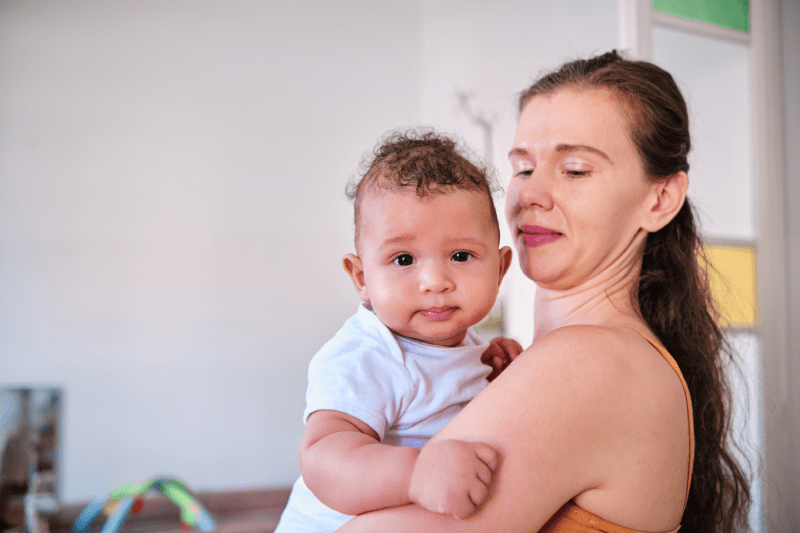
Which Preliminary Tests Are Requested Before Treatment?
Before starting treatment, clinics in Thailand request ovarian reserve tests (AMH, FSH, E2), a uterine scan or ultrasound evaluation from the prospective mother. A current and detailed sperm analysis is requested from the prospective father. Additionally, infectious disease screenings (HIV, Hepatitis B/C) are requested from both partners. Having these preliminary tests done in the patient’s home country and sending the results with an English translation to the clinic speeds up the treatment plan.
How Long Is The Stay Required In Thailand For Treatment?
The duration of stay in Thailand for a fresh PGT IVF cycle is approximately 15 to 20 days, from the start of ovarian stimulation to the embryo biopsy stage. Since the embryo is frozen, the patient can return home after the PGT results are awaited. For a Frozen Embryo Transfer (FET) performed after PGT results are received, a shorter visit of usually 3 to 7 days will suffice.
In Which Cities Are The Centers Performing Gender Selection In Thailand Concentrated?
Centers offering international standard IVF and PGT services in Thailand are generally concentrated in the country’s capital, Bangkok. Bangkok stands out in such treatments due to its developed medical infrastructure, international patient experience, and logistical ease. Although centers are also available in other major cities like Phuket, the laboratories with the highest technology and the most experienced teams are usually located in Bangkok.
How Is The Language Barrier Overcome During Treatment?
International clinics in Thailand assign multilingual international patient coordinators and professional interpreters to overcome the language barrier during treatment. These coordinators manage patients’ appointments, medical report translations, and all communication with the doctor. Having medical interpreters present during critical procedures (egg retrieval, transfer) prevents misunderstandings and makes the patient feel secure. Cure Holiday also provides support in this process to facilitate communication.
What Is The Effect Of The Age Factor On IVF Success In Thailand?
The prospective mother’s age is the most critical determining factor influencing IVF success in Thailand, as is accepted globally. While the success rate is highest in women under 35, success rates decrease due to the decline in egg quality after the age of 40. Clinics in Thailand use genetic screening techniques like PGT intensively and apply personalized protocols to increase the chance of success for older patients.
How Long Does Frozen Embryo Transfer (FET) Take In Thailand?
The Frozen Embryo Transfer (FET) procedure is less invasive than the fresh cycle and is completed in a shorter period in Thailand. Uterine preparation begins in the patient’s home country, and the patient travels to Thailand only for the transfer procedure. This travel period generally ranges between 3 and 7 days. This short stay is one of the logistical advantages of treatment in Thailand and shortens the time taken off work.
What Is The Cost Of Additional Laboratory Techniques Used In Treatment?
Additional laboratory techniques used to increase treatment success in Thailand (e.g., Time-Lapse incubators, Assisted Hatching) may incur extra costs beyond the standard package price. The cost of these advanced techniques varies depending on the clinic but adds an extra burden to the total budget. Since these techniques optimize embryo selection, they can provide a cost advantage indirectly by reducing the total number of attempts in the long run.
What Legal Documents Are Required Before Starting Treatment In Thailand?
Before starting treatment in Thailand, couples must sign passport/ID copies, marriage certificate (for some clinics), English translations of all medical reports, and the informed consent forms required by the clinic. Due to legal regulations, clinics may also request additional declarations ensuring that patients are not violating the laws of their home country.
What Are The Logistical Advantages Of Going To Thailand For Gender Selection?
The logistical advantages of going to Thailand for gender selection stem from the country’s developed tourism infrastructure and ease of international flights. Bangkok’s large international airports provide easy access from all over the world. Furthermore, Thailand’s focus on international patient satisfaction ensures smooth progress in accommodation and transportation organizations. Cure Holiday utilizes these logistical advantages to make your travel more comfortable.
Is An Upper Age Limit Legally Specified For IVF In Thailand?
No clear upper age limit is legally specified for IVF treatment in Thailand. However, clinics have their own ethical boards and medical policies. Most clinics either do not favor treatment for women over 45 due to the very low chance of success and increased risks or only recommend alternative methods such as egg donation. The treatment decision is individualized based on the patient’s general health status and ovarian reserve.
How Common Is The Single Embryo Transfer (SET) Practice?
The Single Embryo Transfer (SET) practice is quite common and encouraged in high-standard IVF clinics in Thailand to reduce the risk of multiple pregnancies. Especially when a genetically healthy embryo is transferred with PGT, SET offers a high success rate. Clinics prioritize this practice to protect the health of both the mother and the baby.
How Should Healthy Pregnancy Follow-up Be Done After Treatment In Thailand?
When pregnancy is achieved after IVF treatment in Thailand, follow-up upon the patient’s return to their home country is mandatory to be done by a local obstetrician and gynecologist. The use of progesterone and other supportive medications determined by the clinic in Thailand should be continued for a certain period with the local doctor’s knowledge. Submitting the detailed treatment and transfer reports from the clinic in Thailand to the doctor who will conduct the pregnancy follow-up is critically important for a healthy follow-up.
How Are Exchange Rate Risks Managed In Overseas Treatment?
Exchange rate risks in overseas treatments can arise due to fluctuations in the Thai Baht against the US Dollar or Euro. To manage this risk, couples can request the clinic to fix the price based on a stable exchange rate or transfer a large part of the treatment fee at the start of the treatment. Agencies like Cure Holiday can help you plan payment schedules that protect against fluctuations in exchange rates.
How Do Clinics In Thailand Support International Patients?
Clinics in Thailand offer support services specially designed for international patients. These services include multilingual patient coordinators, airport transfers, accommodation advice, and logistical and administrative processes such as appointment management. This comprehensive support ensures that patients feel more comfortable and secure in the foreign environment of Thailand, allowing them to focus all their attention on the success of the treatment.
What Are The Legal Uses Of PGT In Thailand Other Than Gender Selection?
The primary and legal use of PGT in Thailand, other than gender selection, is to check the genetic health of the embryo. This includes PGT-A (chromosome number abnormalities) and PGT-M (screening for single-gene diseases) procedures. These medical screenings, in cases such as the prospective mother being of advanced age or having a risk of genetic disease in the family, ensure the transfer of a healthy embryo, reducing the risk of miscarriage and the likelihood of carrying a genetic disease.
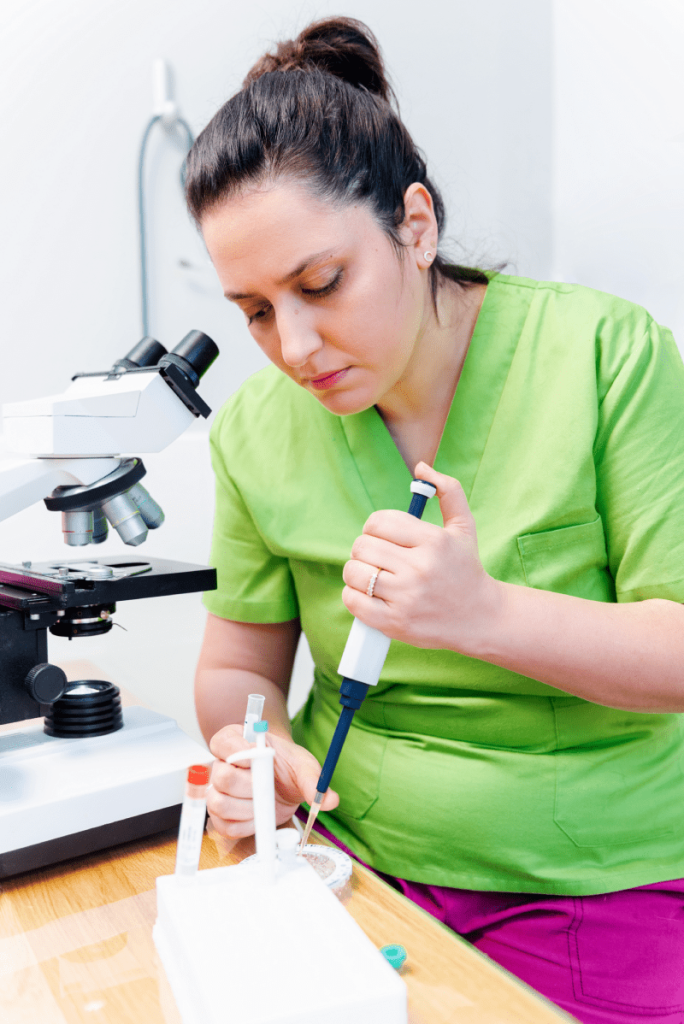
How Do Treatment Prices In Thailand Compare With Mexico And TRNC?
IVF treatment prices in Thailand can generally be higher than other popular legal gender selection centers like Mexico and especially the Turkish Republic of Northern Cyprus (TRNC). Although TRNC and Mexico have advanced technology like Thailand, they offer more affordable packages due to lower operating costs. Thailand may be preferred more by patients seeking luxury service quality and an exotic tourism experience. For those seeking a cost-effective and legal solution, Cure Holiday also offers alternatives like TRNC or Mexico.
How Is The Cold Chain Management Of Medications Used In Treatment Handled?
Most hormone medications used in treatment in Thailand require a cold chain and must be stored in the refrigerator. Your clinic will give you detailed instructions on how to store and administer the medications correctly. Special cold packs and bags must be used to maintain the effectiveness of the medications during travel and the stay. Adhering to the clinic’s clear instructions on this matter is vital for the success of the treatment.
Is Psychological Support Available For Couples Undergoing Gender Selection Treatment?
Gender selection treatment can create intense psychological pressure on couples due to high expectations and the stress of being abroad. Many international clinics in Thailand offer psychological support services to couples during this process. This support can be provided through psychologists at the clinic or as counseling services. Maintaining emotional resilience and managing stress is important for getting through the treatment process in a healthier way.
What Are The Unexpected Additional Expenses That May Be Encountered During The Treatment Process?
Unexpected additional expenses that may be encountered during the treatment process include unexpected increases in medication dosages, expenses for OHSS (Ovarian Hyperstimulation Syndrome) treatment which rarely occurs, or the need for additional blood tests/ultrasound. Furthermore, unexpected travel delays or accommodation extensions can also burden the budget. It is advisable to set aside 10-15% of the total budget as an emergency fund for such unforeseen circumstances.
What Are The Accreditations Of IVF Centers In Thailand?
The leading IVF centers in Thailand generally hold the JCI (Joint Commission International) accreditation, which certifies international patient safety and quality. ISO certifications, which indicate laboratory quality, are also common. These accreditations prove that the medical services of clinics in Thailand comply with global standards and are regularly audited. Checking such certifications is the most certain way to ensure quality when choosing an international treatment center.
Is It Safe To Travel By Plane After Gender Selection Treatment?
Traveling by plane immediately after embryo transfer is generally considered safe. The embryo, once placed inside the uterus, is not affected by changes in air pressure or light movements during the flight. However, doctors may recommend taking precautions, such as light movement during long flights and consuming plenty of water, to reduce the risk of clotting. It is important to follow the specific advice of the specialist performing the transfer for the most accurate travel timing.
What Factors Other Than Price Are Important When Choosing Clinics In Thailand?
Factors more important than price when choosing clinics in Thailand include the laboratory using the latest technology, the experience duration of the embryologists, the clinic’s specialized international patient services, and ethical board supervisions. The reason Thailand is preferred despite the high cost is generally that it offers a luxury and comfortable medical tourism experience. The transparency of success rates and the personalized approach in the treatment process should also supersede the price.
How Does Cure Holiday Provide Support In This Treatment Process?
Cure Holiday supports you in researching high-standard IVF clinics in Thailand, ensuring you receive the best service within a suitable budget. Our support includes selecting reliable and accredited clinics, organizing treatment packages suitable for your budget, planning all travel, accommodation, and airport transfers, and providing professional interpretation services throughout the treatment. With Cure Holiday, you can overcome the organizational difficulties in Thailand and focus solely on the success of your treatment.
